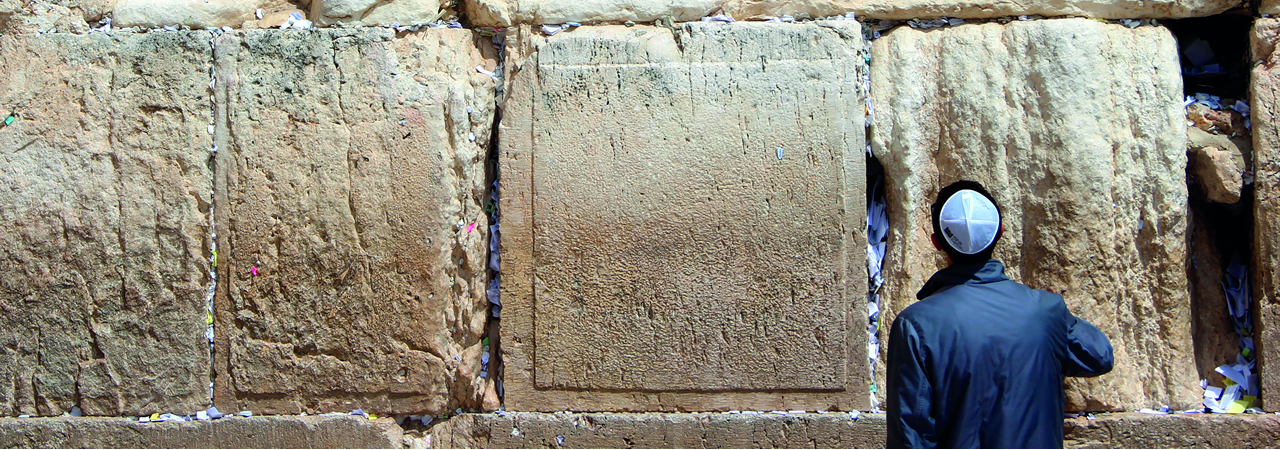Paul and the Hope of Israel
Paul isn’t just a role model for the church he served, but also for the people of Israel he descended from. A biblical-prophetic exegesis.
Indeed, Paul says of himself that he is an example for those who will be saved in the future due to God’s forbearance: “This is a faithful saying, and worthy of all acceptation, that Christ Jesus came into the world to save sinners; of whom I am chief. Howbeit for this cause I obtained mercy, that in me first Jesus Christ might show forth all longsuffering, for a pattern to them which should hereafter believe on him to life everlasting“ (1 Tim 1:15-16).—Why did the Apostle emphasize, “of whom I am chief,” and “in me first”? Paul was surely a dreadful sinner, but he wasn’t the most dreadful of all sinners. There were certainly some worse than him. Just think of King Manasseh in the Old Testament (2 Kings 21:9ff.).
In my view, the Apostle’s statement has a second meaning, a prophetic one. Paul described himself as an example for those who are still coming to Jesus Christ through faith, and thereby receiving eternal life (v. 16). This pertains to all people. But here in the prophetic depths, we can also see the Jewish people. Of these (Jews) Paul is the first, and indeed, a model for the remnant of Israel, which will eventually find its way to Jesus Christ.
In 1 Corinthians 15:8, Paul says of himself: “And last of all he was seen of me also, as of one born out of due time.” The footnote in the Scofield Bible says, “before the due time”; in other words, premature: “Paul thinks of himself here as an Israelite whose time to be born again had not come, nationally (cf. Matt. 23:39), so that his conversion by the appearing of the Lord in Glory (Acts 9:3-6) was an illustration, or instance before the time, of the future national conversion of Israel. See Ezek. 20:35-38; Hos. 2:14-17; Zech. 12:10-13:6; Rom. 11:25-27.”
Regarding Israel’s restoration, Paul writes something peculiar: “I say then, Hath God cast away his people? God forbid. For I also am an Israelite, of the seed of Abraham, of the tribe of Benjamin” (Rom 11:1). Here we can also see how the Apostle sets himself up as an example of the still-forthcoming salvation of Israel. Taking this into consideration, Israel has not been rejected. But why does Paul specifically emphasize that he comes from the tribe of Benjamin?
Paul bore another name, Saul (Acts 13:9). The name “Paul” came to the foreground with his commissioning as a missionary. The Saul of the Old Testament was also a Benjaminite (1 Sam 9:1-2), and this first king of Israel had been rejected by God (15:23, 26; cf. 16:7). But the Saul of the New Testament was accepted.
Is Paul perhaps highlighting, in regard to the rejected King Saul, that Israel hasn’t been rejected? It appears as if God is illustrating the grace of Israel’s restoration and re-adoption for us in Saul of Tarsus (Paul). Saul is the Benjaminite who is under the law, and therefore experiences its full severity and condemnation. He represents the people of Israel under the law.
King Saul was told, “Thou hast done foolishly: thou hast not kept the commandment of the LORD thy God, which he commanded thee” (1 Sam 13:13). But Saul of Tarsus is the Benjaminite who stands under grace, and therefore receives mercy. God again links the salvation of His people Israel to this point.
Paul testifies: “Howbeit for this cause I obtained mercy, that in me first Jesus Christ might show forth all longsuffering, for a pattern to them which should hereafter believe on him to life everlasting” (1 Tim 1:16). But Saul was told, “Behold, to obey is better than sacrifice” (1 Sam 15:22). And the Lord Jesus teaches, “But go ye and learn what that meaneth, I will have mercy, and not sacrifice: for I am not come to call the righteous, but sinners to repentance” (Matt 9:13).
Grace triumphs over the law in the person of Saul of Tarsus. God shows us through him that Israel hasn’t been rejected like King Saul. Saul of Tarsus is a metaphor for the new grace toward Israel, which failed under the law.
In connection with this, the prophetic statements regarding Benjamin are also noteworthy. Before Joseph revealed himself to his brothers in Egypt, he commanded them to bring their brother Benjamin with them by any means necessary (Gen 42:15; 43:3-5, 13, 19; 45:12). When Benjamin was there, he received five times more than his brothers in the court of honor (and five is generally known to be the number of grace). Ironically, Joseph said of Benjamin, “Is this your younger brother, of whom ye spake unto me? And he said, God be gracious unto thee, my son” (Gen 43:29).
So, we see the grace of God for the future hope of Israel illuminated in the person of the Apostle Paul: the conversion of Saul into Paul is a metaphor for the future conversion of the people of Israel (Rom 11:26). His rebirth is an example of the future rebirth of the Jewish people. Then the law will be written on their hearts (Heb 8:10). The appearance of Jesus’ glory on the road to Damascus is a foreshadowing of Jesus’ appearance for Israel at His second coming (Matt 24:30). Paul was converted through a direct revelation of Jesus from heaven, without human help (Acts 9:1-16). In the same way, Israel too will turn toward its Messiah at the end.
Paul’s prior opposition to Jesus and His church resembles the attitude of present-day Judaism (Acts 7:51). God’s forbearance, witnessed by Paul in his life, is the Lord’s patience toward Israel: “Howbeit for this cause I obtained mercy, that in me first Jesus Christ might show forth all longsuffering, for a pattern to them which should hereafter believe on him to life everlasting” (1 Tim 1:16). Forbearance means “restraint and tolerance under provocation.” Just as Paul’s conversion was provoked by the Lord, so Israel’s will also be today through Jesus.
 Ironically, after his conversion Paul became the greatest confessor of the gospel. It’s also a prophetic indication of the future works of the Jews in the millennial kingdom. Paul testifies, “And he said unto me, Depart: for I will send thee far hence unto the Gentiles” (Acts 22:21). “Unto me, who am less than the least of all saints, is this grace given, that I should preach among the Gentiles the unsearchable riches of Christ” (Eph 3:8). And in 1 Timothy 1:12-14, Paul testifies to the grace of God over his life. He says: “And I thank Christ Jesus our Lord, who hath enabled me, for that he counted me faithful, putting me into the ministry; Who was before a blasphemer, and a persecutor, and injurious: but I obtained mercy, because I did it ignorantly in unbelief. And the grace of our Lord was exceeding abundant with faith and love which is in Christ Jesus.”
Ironically, after his conversion Paul became the greatest confessor of the gospel. It’s also a prophetic indication of the future works of the Jews in the millennial kingdom. Paul testifies, “And he said unto me, Depart: for I will send thee far hence unto the Gentiles” (Acts 22:21). “Unto me, who am less than the least of all saints, is this grace given, that I should preach among the Gentiles the unsearchable riches of Christ” (Eph 3:8). And in 1 Timothy 1:12-14, Paul testifies to the grace of God over his life. He says: “And I thank Christ Jesus our Lord, who hath enabled me, for that he counted me faithful, putting me into the ministry; Who was before a blasphemer, and a persecutor, and injurious: but I obtained mercy, because I did it ignorantly in unbelief. And the grace of our Lord was exceeding abundant with faith and love which is in Christ Jesus.”
Israel is also striving toward ignorance today; that is, folly and disbelief. As it is written: “For I bear them record that they have a zeal of God, but not according to knowledge” (Rom 10:2). The only thing that can help them is God’s mercy—and they will receive it.
Devout Jews pray daily (often before meals): “Have mercy, O Lord our God, upon Israel thy people, upon Jerusalem thy city, upon Zion the abiding place of thy glory, upon the kingdom of David thine anointed, and upon the great and holy house that was called by thy name. Establish his kingdom. Advance thy salvation. Let the Anointed One come and let His people come!”
Israel’s hope is in God’s great mercy, and in the return of Jesus the Messiah for His people.
News from Israel - 01/2021


